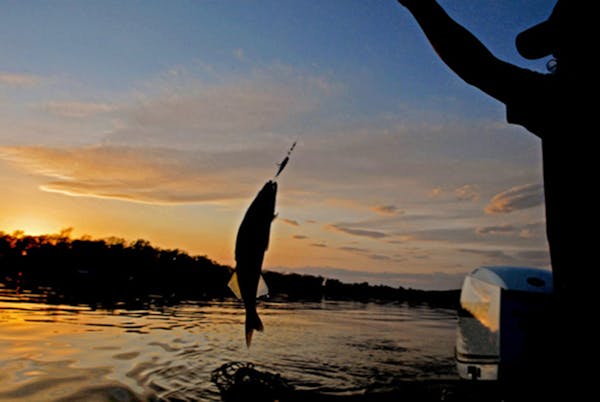Minnesotans could be hunting wolves again as early as the fall of 2020, but nothing is assured as the U.S. Fish and Wildlife Service (FWS) embarks on another quest to remove the species from the nation's endangered species list.
The federal agency will be sued by environmental groups hoping to derail the effort, but the Trump administration is waiting any day now for the Federal Register to publish its official proposal to delist gray wolves throughout the lower 48 states.
Months and months of public input and agency analysis would follow, but it's conceivable a final rule and delisting could happen inside of 12 months. The last time gray wolves were delisted in Minnesota was January 2012. The Department of Natural Resources (DNR) quickly staged a lottery for license applications. By Nov. 3 of that year, 23,000 hunters and trappers set out to harvest 413 wolves.
"What this means for the practicality of a [wolf] season in Minnesota is still unknown," said Craig Engwall, executive director of the Minnesota Deer Hunters Association. "But it's great. It's really good news."
Besides the threat of lawsuits, the FWS could possibly withdraw its proposal. But the agency has succeeded previously in delisting gray wolves in the northern Rockies and in the western Great Lakes region. This latest proposal is different in that it would cut across the Lower 48.
Wolves currently are hunted in the northern Rockies, but wolf hunting in Minnesota ended after the 2014 season when federal courts overturned the regional delisting. A subsequent court ruling upheld the endangered and threatened species protection.
Engwall said Minnesota hunters aren't out to get rid of wolves. But many deer hunters believe strongly that gray wolves in northern Minnesota should be managed as predators by state wildlife officials. The state's wolf harvest was limited to 238 animals in 2013 and 272 in 2014.
"Deer hunters think it's really legitimate to reduce the numbers [of wolves] in accordance with plans," Engwall said.
Wolfpack stability
Dan Stark, DNR large carnivore specialist, said Minnesota's wolf population has been stable for many years, edging up when deer are abundant in northern forests and down when there's fewer whitetails to prey upon. The most recent survey, conducted last winter, estimated 2,655 wolves in the state's large, unfragmented wooded landscapes.
"Minnesota's wolf population is doing well," Stark said. "There's not a significant change in number or distribution."
He said any new hunting seasons will be conducted in ways that won't hurt the long-term presence of wolves. Looking back at 40 years of federal protection for the animals, the species' recovery in Minnesota far exceeded expectations, Stark said. Minnesota's packs spread into Wisconsin and Upper Michigan, where some 1,500 wolves remain.
"It's really quite remarkable how well they came back here," he said. "Our goal is to ensure that the wolf continues to thrive here and that we address conflicts between wolves and people."
The Center for Biological Diversity is one group certain to fight the FWS. "If Trump's plan goes through, it'll return us to the days when wolves were shot, poisoned, trapped and mercilessly persecuted to the brink of extinction. We can't let that happen," the non-profit conservation group wrote on its web page.
Collette Adkins of Minneapolis is the group's carnivore conservation director. She said federal judges "time and time again" have slammed Fish and Wildlife for prematurely removing gray wolves from the endangered and threatened list. She said it's easy to show that the recovery of gray wolves is unfinished.
Successful court challenges to previous delistings have only galvanized grassroots support for the environmental groups leading the charge, she said.
Call of the Wild
Just last week, the Center for Biological Diversity held a "Call of the Wild" webinar that drew 500 people who are motivated to stop further attempts to delist wolves.
"The conservation community is going to do everything we can to keep wolves protected," Adkins said.
She said her group will request that the FWS hold a public hearing in Minnesota on the proposed change. "If they don't give us one, we'll have our own hearing," Adkins said.
Gavin Shire, a FWS spokesman, said the length of time for the agency to accept and distill public comments is variable. But it won't be delayed by "lots of click and send comments" that aren't substantive, he said. The agency will decide whether to go forward with a final rule based on scientific and commercial reasoning.
The idea is to delist gray wolves across the Lower 48 where they are not already delisted, he said. The timing depends on the individual rule, not whether it applies to a local or national species, he said.

Wild return to the friendly road, roll past the Blues

Minnesota high school sports scores and results for Tuesday

Gophers men's basketball team slips away from Cleveland State
An emotional Rafael Nadal retires at the Davis Cup after he loses and Spain is eliminated

